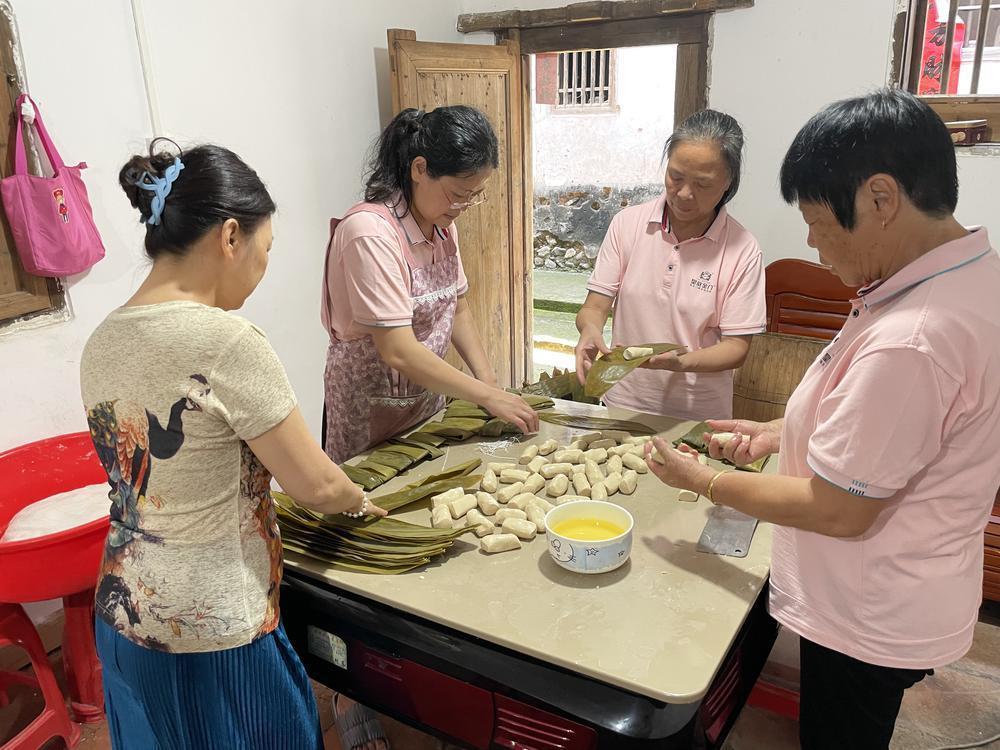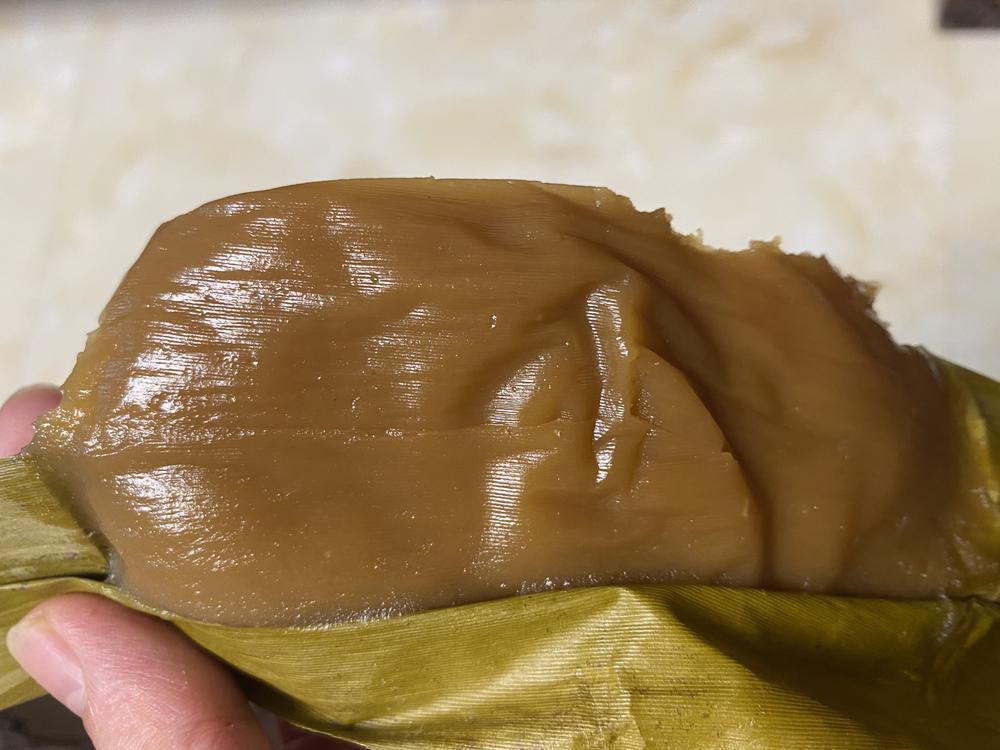Quando o zongzi fumegante e perfumado é finalmente destapado, as camadas de folhas de zongzi embrulhadas são retiradas, uma forte fragrância de arroz misturada com o aroma especial da carne chega ao nariz. Se der uma dentada e saborear, o sabor do zongzi de carne espalhar-se-á da ponta da língua para todo o corpo. Na cidade de Shaoguan, no condado de Shixing, é costume a população local Hakka fazer zongzi e bolos de arroz glutinoso com folhas de bananeira durante o Festival do Barco-Dragão. O processo de fazer mochi e embrulhar zongzi é fastidioso e cansativo, mas os Hakka apreciam-no, pois sentem que não se trata apenas de um deleite festivo, mas também de uma espécie de património festivo.

蕉叶糍粑制作中

蒸熟的蕉叶糍粑
#TheGreatBeautyofGuangdong When you uncover the pan and slowly peel off freshly baked zongzi, the special fragrance of meat zongzi—a strong smell of rice and meat—will greet you. Take a bite and savor, the taste of meat zongzi will spread from the tip of the tongue to the whole body. In Shixing County of Shaoguan municipal, Guangdong, it is a custom for local Hakka people to make zongzi and glutinous rice cakes with banana leaves during Dragon Boat Festival. Though the process of making meat zongzi is sophisticated and tiring, the Hakka people enjoy preparing this special food as it represents their festival heritage.
当热气腾腾、香味四溢的粽子终于揭锅时,一层层剥开包裹的粽叶,一股浓烈的米香混合着肉香的特殊香气扑鼻而来,慢慢地咀嚼、细细地品味,过节的滋味就从舌尖蔓延到全身……在韶关市始兴县,包粽子、做蕉叶糍粑是当地客家人端午节必不可少的一项民俗活动。做糍粑、包粽子的工序虽然繁琐、累人,但是客家人却乐在其中,他们觉得这不仅仅是应景的美食,更是一种节日的传承。









